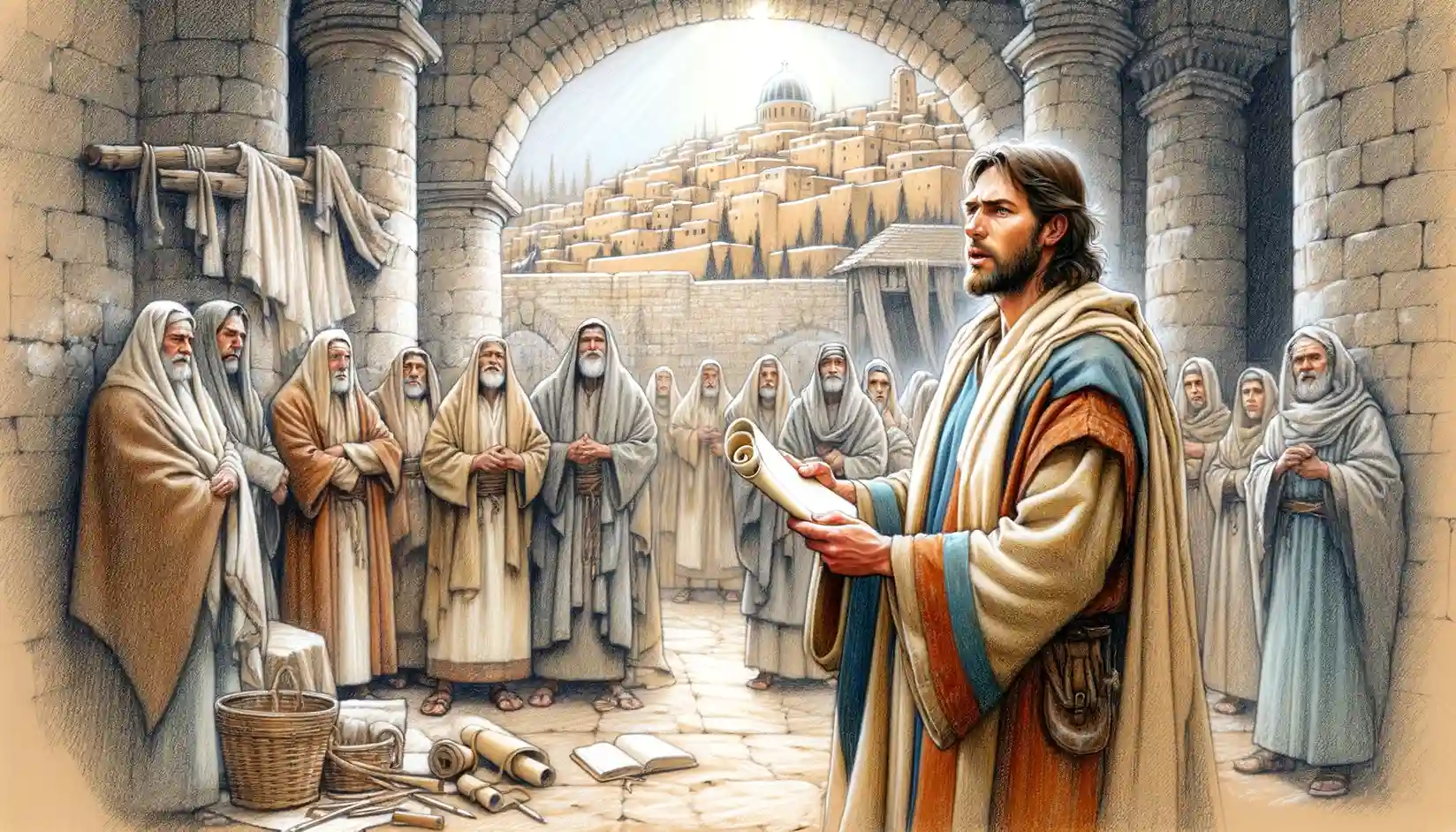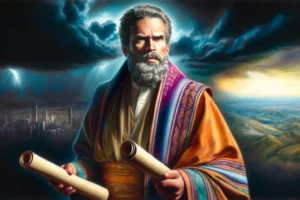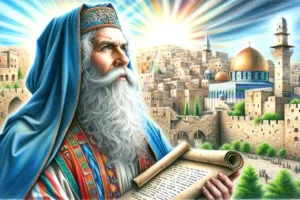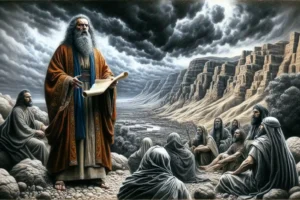
Micah: Prophet who Foretold the Birthplace of the Messiah
Micah, a prophet in the Hebrew Bible, is notable for his prophecies about social justice, judgment, and hope. One of his most significant contributions is his prophecy about the birthplace of the Messiah, which identifies Bethlehem as the chosen location.
Quick Facts
- Prophet of Social Justice: Micah spoke against the social injustices and corruption prevalent in Judah and Israel.
- Contemporary of Isaiah: Micah’s ministry overlapped with that of the prophet Isaiah, during the 8th century B.C.
- Hometown: He was from Moresheth, a town in Judah.
- Book of Micah: His messages are recorded in the Book of Micah, which contains seven chapters.
- Foretold the Fall of Samaria and Jerusalem: Micah prophesied the destruction of these cities due to their sins.
- Messianic Prophecy: He foretold that the Messiah would be born in Bethlehem (Micah 5:2).
- Call to Repentance: Micah called the people to repentance and a return to covenant faithfulness.
- Famous Verse: Micah 6:8 is one of the most well-known verses in the Bible, summarizing what God requires: “To act justly and to love mercy and to walk humbly with your God.”
Historical and Cultural Context
Micah’s prophetic ministry occurred during a turbulent time in the history of Israel and Judah. The northern kingdom of Israel was on the brink of destruction by the Assyrians, and Judah faced significant threats and internal corruption. Micah, a contemporary of Isaiah, Amos, and Hosea, addressed the moral and social decay of his time, focusing on the injustices perpetrated by the leaders and the wealthy.
Messages of Judgment and Hope
Micah’s prophecies are a blend of judgment and hope. He condemns the rulers, priests, and false prophets for leading the people astray and exploiting the vulnerable (Micah 3:1-12). He warns that their actions will lead to the destruction of Jerusalem and Samaria. However, alongside these messages of judgment, Micah also provides hope. He speaks of a future restoration and the coming of a righteous ruler who will shepherd God’s people (Micah 4:1-5:15).
The Messianic Prophecy
One of Micah’s most famous prophecies is found in Micah 5:2, where he foretells the birthplace of the Messiah: “But you, Bethlehem Ephrathah, though you are small among the clans of Judah, out of you will come for me one who will be ruler over Israel, whose origins are from of old, from ancient times.” This prophecy identifies Bethlehem, a seemingly insignificant town, as the birthplace of a future ruler whose impact will be eternal. This verse is quoted in the New Testament (Matthew 2:6) as being fulfilled in the birth of Jesus Christ.
Call to Repentance and Covenant Faithfulness
Micah emphasizes the need for repentance and a return to covenant faithfulness. He calls the people to reflect on their relationship with God and to live according to His commandments. Micah 6:8 encapsulates his message: “He has shown you, O mortal, what is good. And what does the LORD require of you? To act justly and to love mercy and to walk humbly with your God.” This verse highlights the ethical and spiritual demands that God places on His people.
Theological Themes
- Social Justice: Micah’s critique of the social injustices of his time underscores the importance of justice and righteousness in society.
- Divine Judgment and Mercy: His prophecies reflect the dual themes of divine judgment against sin and the promise of mercy and restoration for those who repent.
- Messianic Hope: The prophecy about Bethlehem as the birthplace of the Messiah introduces a significant Messianic hope that is central to Christian theology.
- Covenant Faithfulness: Micah’s call for justice, mercy, and humility emphasizes the ethical demands of living in a covenant relationship with God.
Legacy and Impact
Micah’s prophecies have had a lasting impact on both Jewish and Christian traditions. His call for social justice resonates with contemporary issues of inequality and corruption. The prophecy of the Messiah’s birthplace has been a cornerstone in Christian theology, affirming Jesus’ fulfillment of Old Testament prophecies. Micah 6:8 continues to inspire and challenge believers to live out their faith through just, merciful, and humble actions.
Conclusion
Micah, the prophet who foretold the birthplace of the Messiah, delivered powerful messages of judgment, repentance, and hope. His emphasis on social justice, covenant faithfulness, and the promise of a future ruler from Bethlehem remains significant in both religious thought and ethical practice.
Tag:Bethlehem, Hebrew Bible, hope, judgment, Messiah, Micah, Micah 6:8, prophet, repentance, Social Justice



